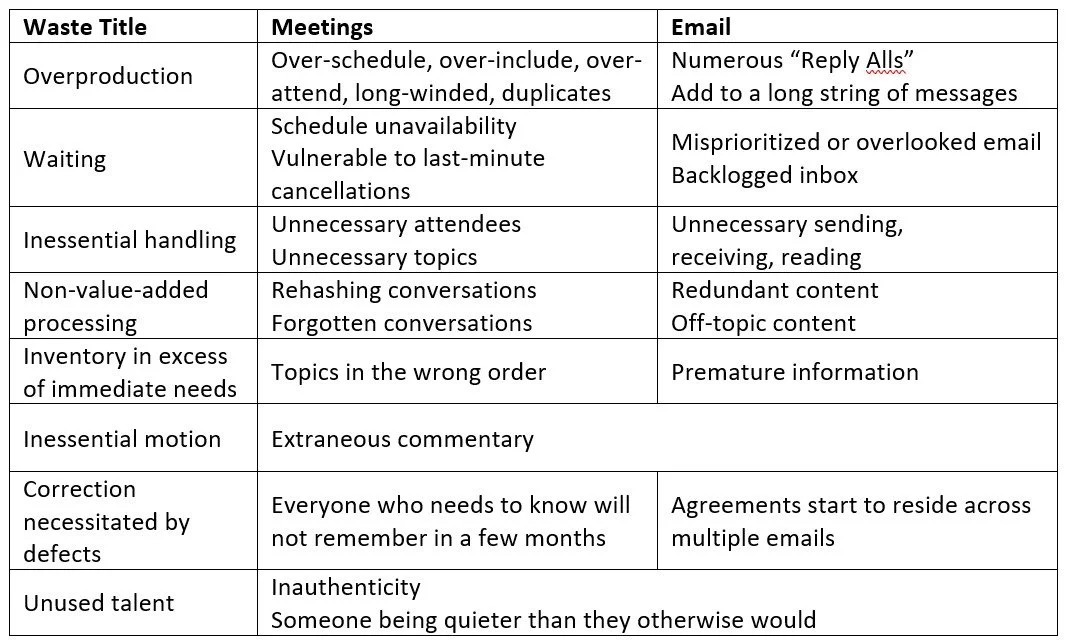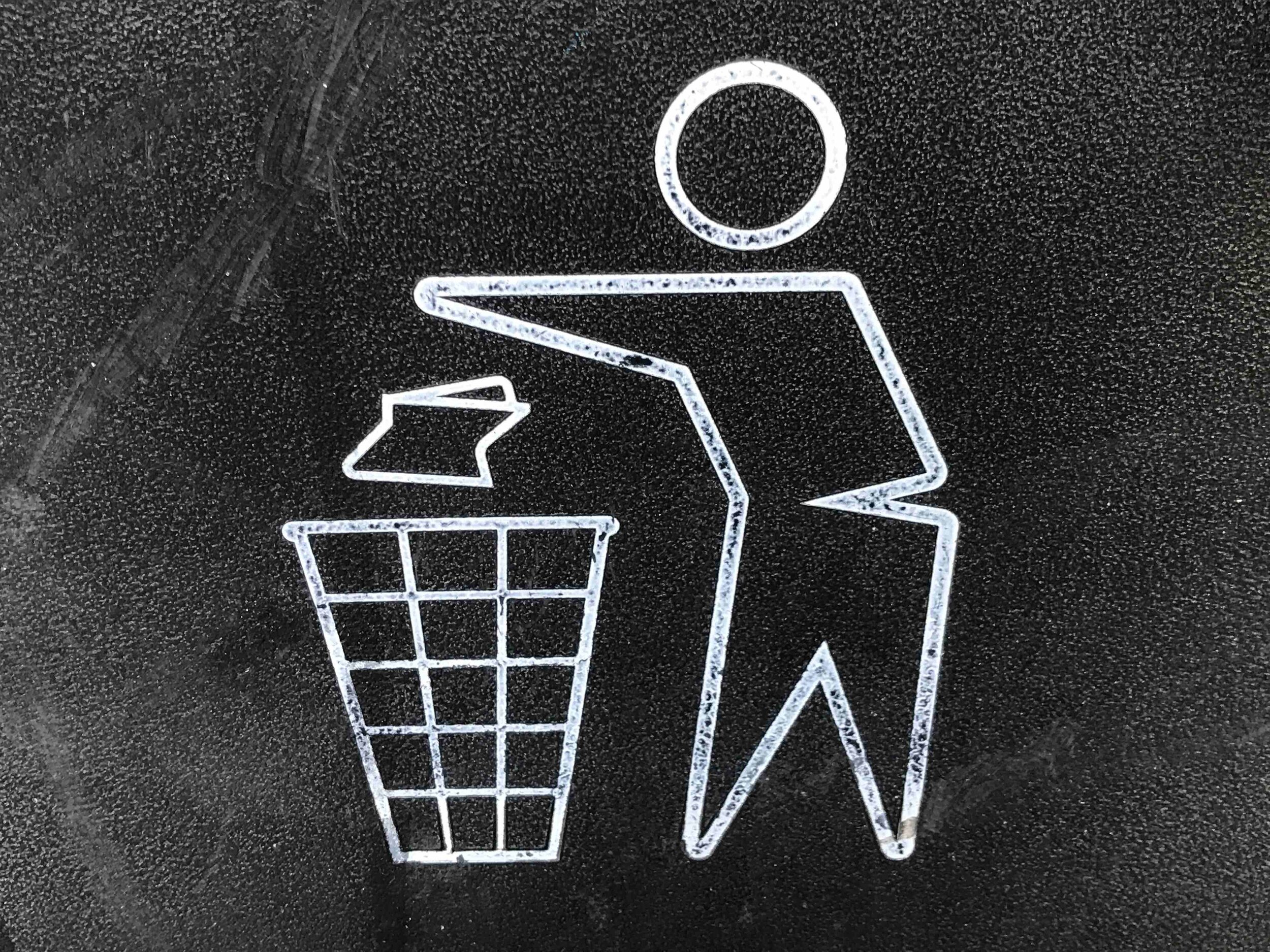Improve Your Culture’s Waste
Mindfulness about certain culture traits can reduce waste in innovation and teamwork.
In a project team environment, a good place to start any conversation about waste is how Toyota’s Eight Wastes map to meetings and email.
A lot of waste exists in meetings and emails, but some common documentation is wasteful since it dilutes teamwork away from better formats.
In a team environment, a small amount of waste is expected. Waste due to human error or “sampling errors” are acceptable - call it empathy, grace, or forgiveness. Waste due to systemic and systematic errors is not acceptable. The value lost is a big deal.
Forgive sampling errors and discipline the others.
Chaos is wasteful. Its forms include mischief, drama, firefighting. To minimize chaos, aim for clarity, progress, and peace. Instead of a disagreement factory, groom an agreement factory. Chaos creates high switching cost and undermines low marginal cost.
It’s important to compete and collaborate at the right times. Operating in the mode wrong is wasteful.
Unhealthy competition is cheating and predatory. Unhealthy collaboration is collusion. Businesses might collude on pricing. People might collude in cliques. Healthy competition includes interviews, auditions, tradeoffs, tough decisions, and resilience from not winning. Healthy collaboration is good teamwork.
To minimize waste, be thoughtful about when you should compete versus when you should collaborate.
When someone doesn’t like the game, they change the game. Sore losers leave the game. Some might fairly change the game (Netflix changed the game on Blockbuster). And others react, “If I can’t win, no one can,” and they try to destroy the game. Destructive behavior is highly wasteful. Good game hosts work hard so everyone can maintain their dignity.
Matchmaking reduces waste. An excess supply of workers is “unmatched.” Their time and talent are wasted until they find an opportunity. An excess demand of work is “unmatched.” Problems persist when insufficient workers are unmatched to solve them. This is also wasteful. A small amount of excess labor allows some rest which is healthy. A modest queue of work is also healthy. But large amounts of supply and demand is wasteful. Playing matchmaker reduces waste.
What starts as a great fit can evolve into something mediocre. Retaining a mediocre fit is wasteful. If you reduce the barrier and raise the incentive to change, replacing a mediocre fit with a great fit reduces waste.
In your culture, be mindful of what waste is acceptable and what waste deserves attention, tough decisions, and discipline!




